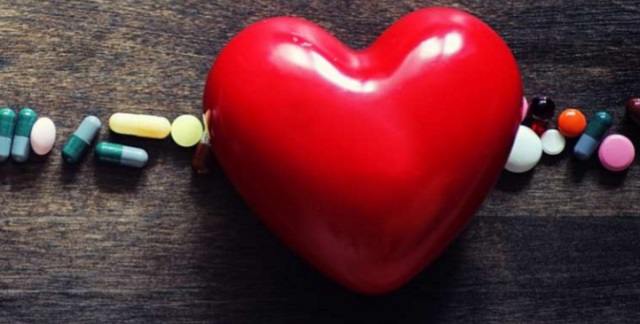
A new combination drug may have the potential to revolutionise hypertension treatment worldwide, after a clinical trial has declared it safe to use and very effective
| THE INDEPENDENT | In a recent clinical trial led by researchers from the George Institute for Global Health — with branches in the United Kingdom, Australia, and India — they tested the effectiveness and safety of using an innovative drug for the treatment of high blood pressure, or hypertension.
This drug, nicknamed the “triple pill” by the investigators, combines low doses of three existing drugs for blood pressure.
Namely, these are: telmisartan (20 milligrams), amlodipine (2.5 milligrams), and chlorthalidone (12.5 milligrams).
According to World Health Organisation (WHO) data from 2008, about 40 percent of adults aged over 25 had raised blood pressure worldwide. The WHO also estimates that hypertension is responsible for 7.5 million of all deaths across the globe.
That is because this condition is a major risk factor for both heart disease and stroke, making it a priority to have effective treatments in place for the regulation of blood pressure.
Normally, people with hypertension start taking one blood pressure drug at low doses, only to have to return to their doctors time and again. They then get prescriptions for increasingly higher doses and more hypertension drugs.
According to study co-author Dr. Ruth Webster, “Patients are brought back (to the doctor’s office) at frequent intervals to see if they are meeting their targets with multiple visits required to tailor their treatments and dosage.”
“The problem with this approach,” she adds, is that it “is not only time inefficient, it’s costly. We also know that many doctors and patients find it too complicated and often don’t stick to the process.”
So, Dr. Webster and colleagues tested a method that, they hoped, would be more efficient, would not have additional side effects, and would remove some of the inconveniences related to a traditional treatment.
This is how they came up with the “triple pill,” which combines fixed low doses of three already existent drugs commonly used to treat hypertension.
‘Triple pill’ vs. traditional therapy
The clinical trial testing the efficacy and safety of the new combination pill took place in Sri Lanka. It involved 700 participants — aged 56, on average — whose average blood pressure amounted to 154/90 millimeters of mercury (mm Hg), which is a typical sign of hypertension.
Of all the participants, some took the combination pill, while others continued to follow their usual blood pressure-lowering therapy, as per their doctors’ advice.
In contrast to those following traditional therapy for hypertension, a larger number of those taking the combination pill were able to lower their blood pressure effectively, reaching their target pressure of 140/90 mm Hg or under.
The target for individuals with diabetes or kidney disease was 130/80 mm Hg, which many people taking the “triple pill” were able to reach.
More specifically, 70 percent of the people taking the “triple pill” achieved their target blood pressure, compared with a little over 50 percent of the participants who continued on traditional hypertension therapy.
In the study paper they published in `JAMA’, the authors explain that after 6 months from the start of the trial, 83 percent of the people who had started on the “triple pill” were still following this same treatment.
To the contrary, most of the participants following a traditional treatment had added medication or increased drug quantities by the 6-month mark.
“The World Heart Federation (have) set an ambitious goal that by 2025 there will be a 25 percent reduction in blood pressure levels globally,” says study co-author Prof. Anushka Patel.
“The triple pill,” she continues, “could be a low-cost way of helping countries around the world to meet this target.”
‘This study has global relevance’
Researchers at the George Institute believe that their “triple pill” could really make a difference to current therapy for hypertension.
Right now, the team is looking into the combination drug’s cost effectiveness for various countries and putting into place strategies to make the drug accessible across the world. “This study has global relevance,” says Prof. Patel.
“While the most pressing need, from the perspective of the global burden of disease, is low- and middle-income countries, it’s equally relevant in a country like Australia where we’re still achieving only (40–50 percent) control rates for high blood pressure,” said Patel.
****
Source: Medical News Today
 The Independent Uganda: You get the Truth we Pay the Price
The Independent Uganda: You get the Truth we Pay the Price



